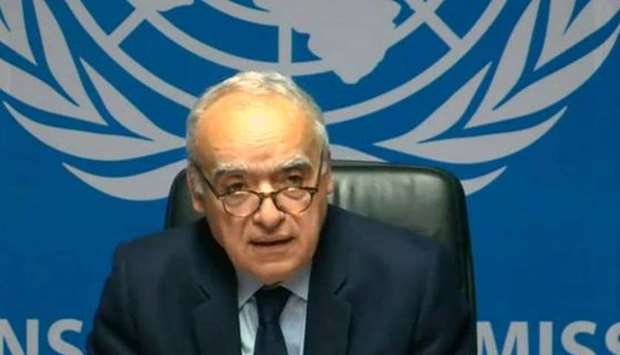A United Nations envoy called on Monday for a truce to be declared in Libya around Aug. 10, and warned that an influx of weapons from foreign supporters in violation of an arms embargo was fueling the conflict.
The truce should be declared to mark the Eid al-Adha holiday, UN Libya envoy Ghassan Salame told the Security Council, and be accompanied by confidence-building moves like an exchange of prisoners and remains and release of those arbitrarily detained.Libya has been riven by violence since the fall of Muammar Gaddafi in 2011. Since April, the eastern Libyan National Army (LNA) under Khalifa Haftar has been trying to take Tripoli from forces allied with the UN-recognized Government of National Accord (GNA), but the LNA offensive has bogged down on the capital’s outskirts.
"In the course of the current fighting, serious violations of international human rights and humanitarian law by all parties have been committed,” Salame told the 15-member Security Council.
"More than ever, Libyans are now fighting the wars of other countries who appear content to fight to the last Libyan and to see the country entirely destroyed in order to settle their own scores,” he said.
The warring parties both enjoy military support from regional powers. Haftar’s forces have been supplied for years by the United Arab Emirates and Egypt, while Turkey recently shipped arms to Tripoli to stop Haftar’s assault, diplomats say.
"Armed drones, armored vehicles and pickup trucks fitted with heavy armaments, machine guns, recoilless rifles, mortar and rocket launchers, have been recently transferred to Libya with the complicity and indeed outright support of foreign governments,” Salame said.
Following a truce, Salame proposed a high-level meeting of concerned countries be convened to "cement the cessation of hostilities, work together to enforce the strict implementation of the arms embargo to prevent the further flow of weapons to the Libyan theater; and promote strict adherence to international humanitarian and human rights law by Libyan parties."
He said this should then be followed by a meeting of leading and influential Libyans to agree on a way forward out of the conflict.
"This triple action will require consensus in this council and amongst the member states who exert influence on the ground,” Salame said.
In a statement earlier this month, the UN Security Council called for the warring parties to commit to a ceasefire and urged other countries not to intervene or exacerbate the conflict.
Britain’s UN Ambassador Karen Pierce said the council would discuss Salame’s proposals to work out how best the body could support the United Nations.
The Security Council has struggled to unify on how to deal with the renewed violence. Shortly after Haftar began his offensive, the United States and Russia both told council colleagues that they could not support a resolution that would have called for a ceasefire in Libya.

